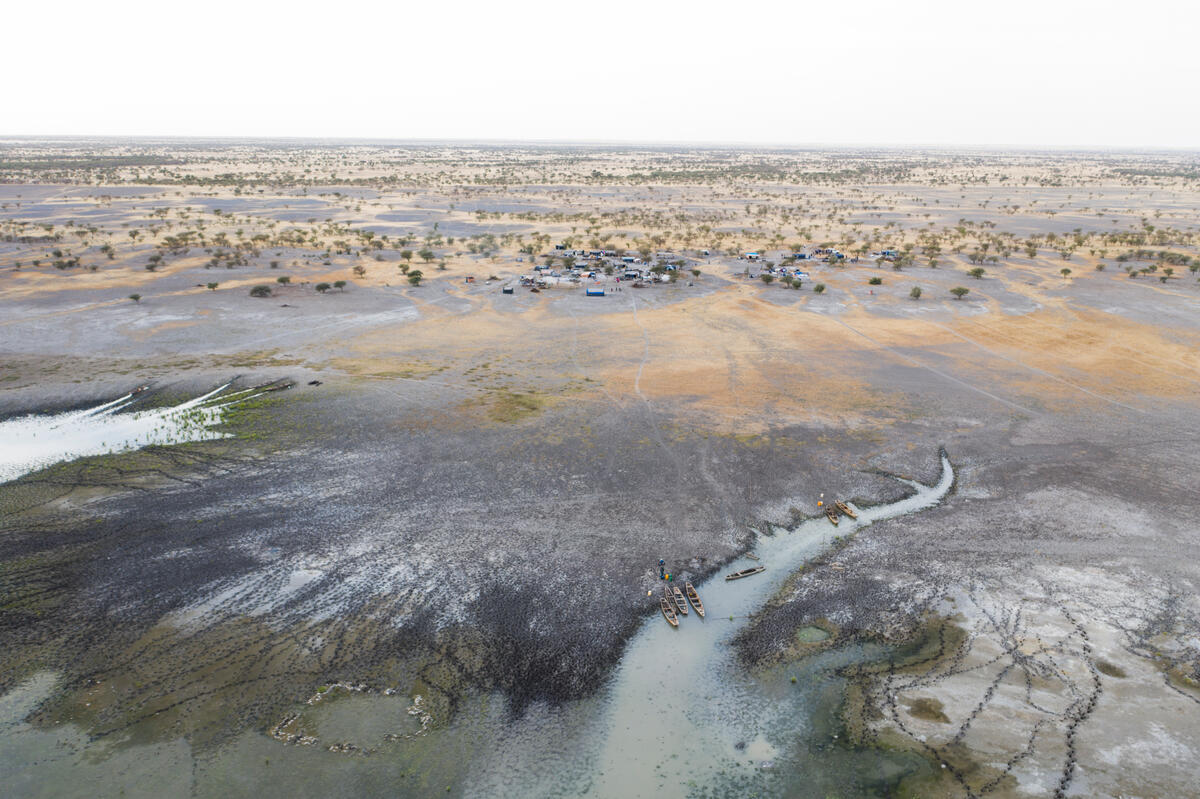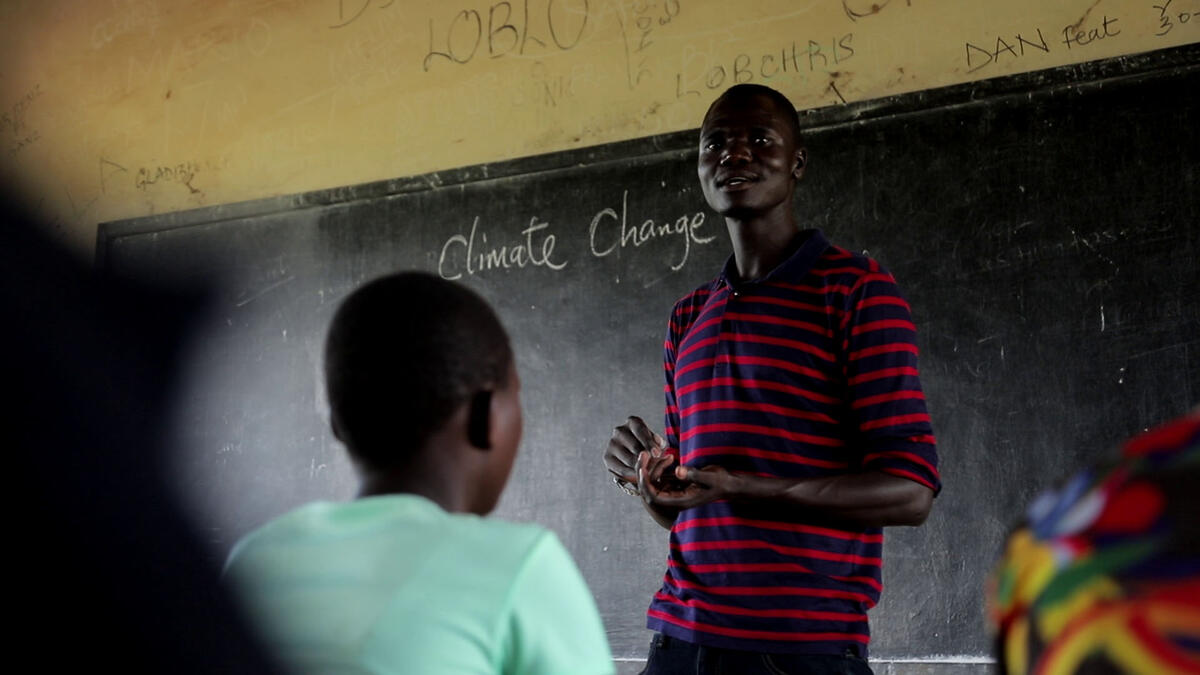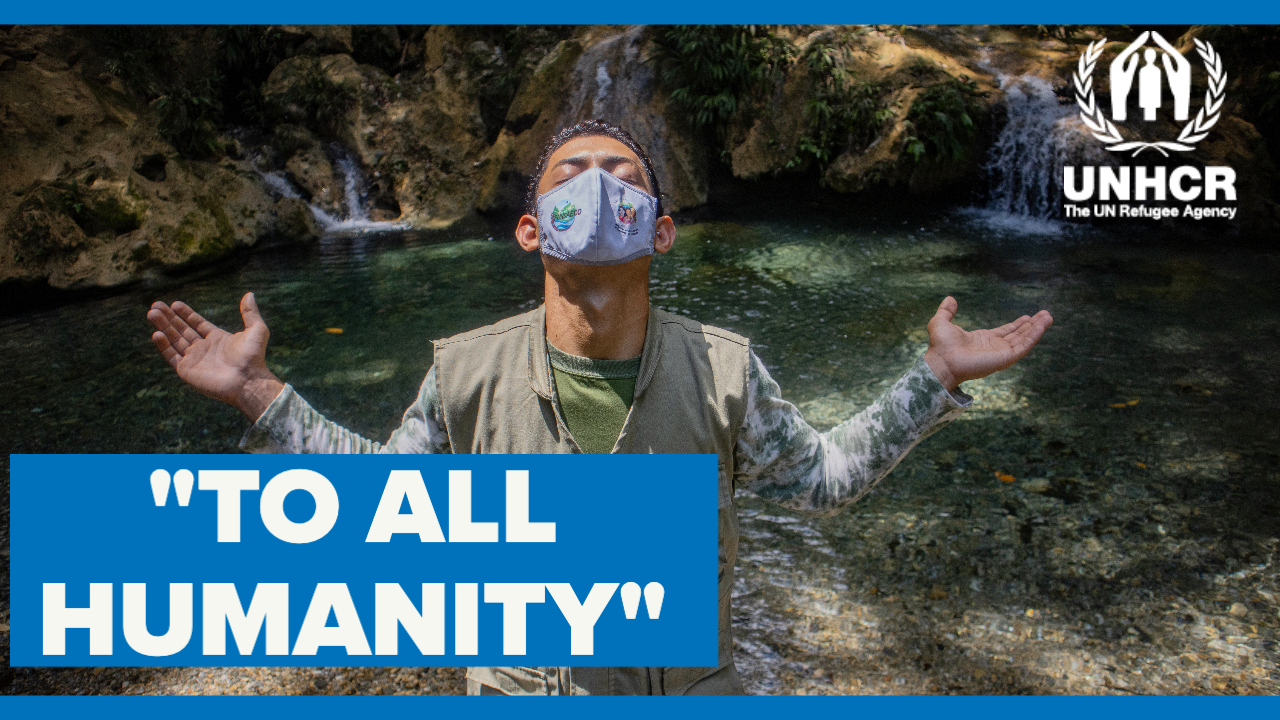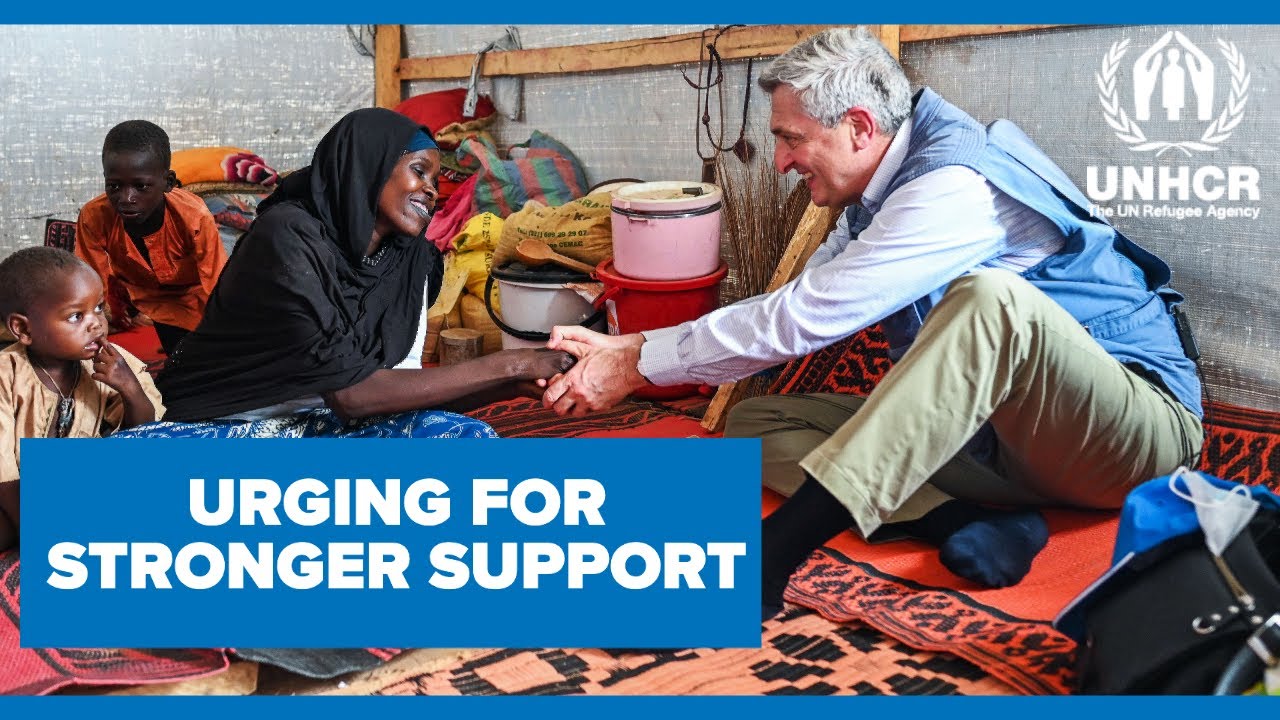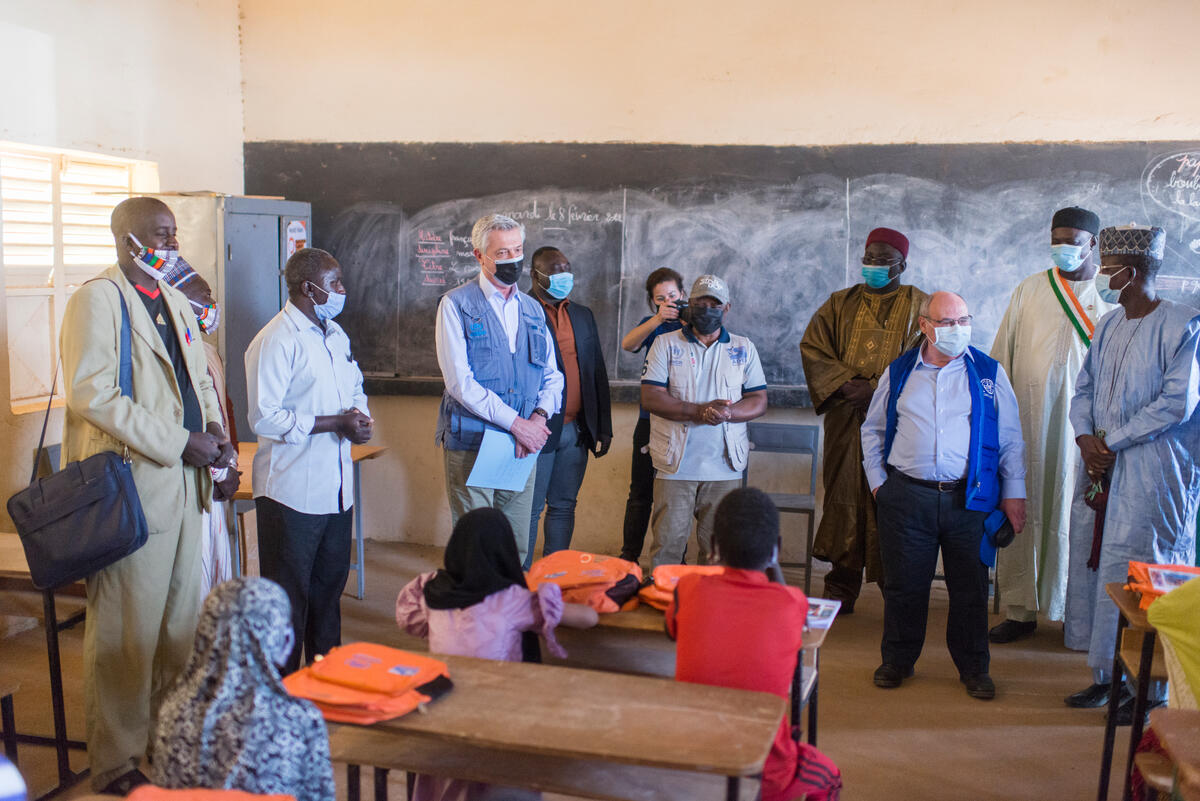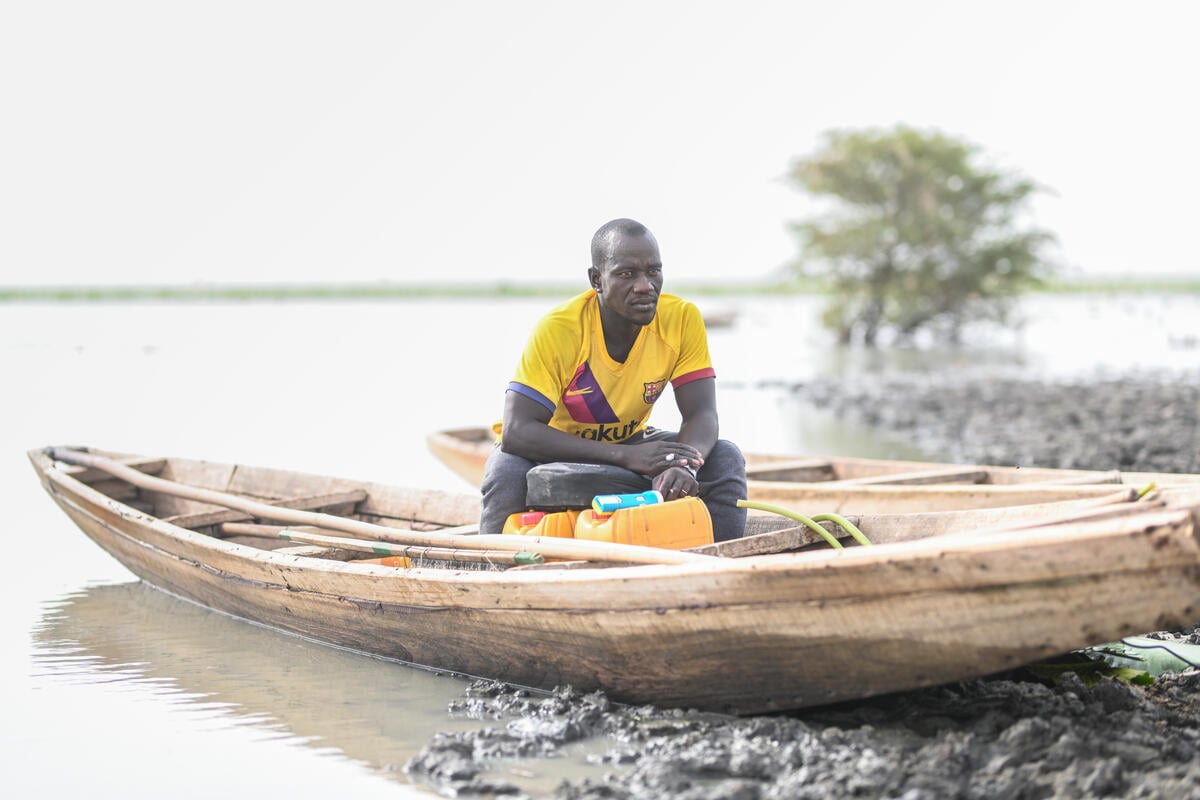Greening refugee camps for World Environment Day
Greening refugee camps for World Environment Day

GENEVA, June 3 (UNHCR) - How do you grow trees in a desert camp? Cook with a handful of firewood? Wash, drink, bathe and cook with scarce water? These are among the many challenges facing the UN refugee agency as it marks World Environment Day this weekend.
The theme of this year's World Environment Day, which falls in June 5, is "Green Cities - Plan for the Planet". UNHCR has adapted it to: "Green your Camps - Improve Natural Resource Management and Plan for the Planet".
"Refugees' impact on the environment can have an important bearing on the willingness of host states to continue to grant asylum," Assistant High Commissioner Kamel Morjane told UNHCR staff on Friday. "An absence of environmental measures in a sizeable refugee operation may affect local livelihoods and welfare through excessive use of local resources. This can lead to strained relationships with the host communities. In extreme cases, the competition for natural resources can turn local communities or governments against refugees and threaten the very institution of asylum."
To prevent this from happening, UNHCR has been running a wide range of projects in its camps worldwide to mitigate the impact of refugees on the environment.
In eastern Chad, where UNHCR's 12 camps host more than 200,000 Sudanese refugees from the Darfur region, the refugee agency is planning to distribute over 300,000 seedlings from its nurseries during the rain season so that the refugees and host communities can plant trees in the camps and surrounding villages. It is a challenge especially in the semi-arid north, where water is scarce.
"The timing is very important," said UNHCR's environment expert, Valentine Ndibalema. "We distribute the seedlings when the rainy season starts in June so that the trees can sprout quickly. Each family is responsible for a few trees, and when the rains stop, we teach them how to use waste water and kitchen water to maintain the trees. We're trying to promote simple techniques so everyone can participate. "
Besides planting trees for shade, refugees are also supported to produce vegetables to supplement their diet. Due to the harsh desert climate and lack of arable land in eastern Chad, efforts are being made to encourage the creative use of available materials, with crops being grown in World Food Programme sacks, a method known as multi-storey gardening.
Firewood is a valuable commodity in Chad's camps, like in many camps elsewhere. Because refugees need it to cook their meals, UNHCR and the local authorities have been providing transport for refugee women to pick up dead wood in designated areas.
Kerosene stoves have been introduced in some camps. In others, the traditional open fireplace has been replaced by mud stoves that save firewood by shielding the flame from wind. An eco stove called the Save 80 is also being introduced to further reduce firewood consumption.
"Used properly, the eco stove can save up to 80 percent of the firewood normally used," said inventor Christian Koch. "It uses smaller pieces of wood not traditionally collected and burnt, and the flame and pot are protected from the wind. It takes about 250 grammes of firewood and 25 minutes to boil 6 litres of water."
UNHCR also encourages refugee households to share cooking equipment, like a big hotplate that stays hot long after a family has finished cooking. Food preparation, too, has been modified to cut down on cooking time - by milling rice, for example. But changing generations of traditions will take time.
"Many of them used to cultivate on their own land in small communities back home, where there was no competition for natural resources. Now they live in huge camps with limited resources," explained Ndibalema. "Others were nomads who depended on their livestock. They lost their animals while fleeing and have to learn to farm from scratch."
Assistant High Commissioner Morjane added, "Being mindful of environmental issues from the earliest stages of refugee operations is increasingly seen to limit environmental damage - and to help avoid costly rehabilitation projects in later stages."
In eastern Sudan, from where many Ethiopian and Eritrean refugees have repatriated, UNHCR and its partners are cleaning up camps before handing the land back to the local authorities. This involves demolishing refugee huts, collecting rubbish and de-activating latrine pits, among other activities. A multi-year reforestation project is rehabilitating over 8,000 hectares of severely degraded forests, benefiting 70,000 local residents.
Returnees to Liberia often find their home areas devastated by years of conflict and mass population movements. UNHCR has set up environment centres to raise awareness on how they can rehabilitate these areas. School children, too, are being sensitised on environmental protection through lessons and practical action.
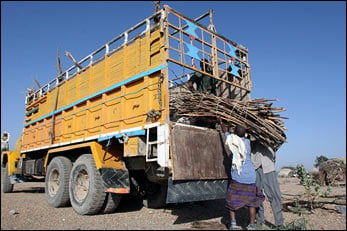
But ultimately, said Ndibalema, "We need to help decision-makers at different levels to understand their role and responsibilities to the environment. We need high-level support before anything can happen on the ground. There needs to be a joint effort between refugees, UNHCR, host communities and the local authorities."
He specified, "We have to invest in the local communities through awareness raising and training in simple techniques. We need to encourage them to participate in planning and implementing the projects, like choosing the type of trees to grow and taking ownership of them. It's the only way of sustaining what we're doing, so that environment projects can continue long after the refugees, UNHCR and other agencies have gone."
For World Environment Day, UNHCR's offices around the world have planned activities ranging from demonstrations of sound environmental practices to awareness raising campaigns, camp clean-ups, tree planting, games, competitions and cultural events.

